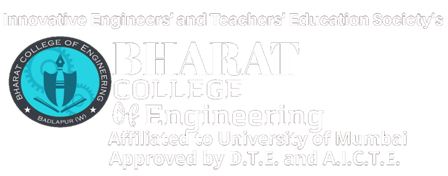Vision
To create competitive graduates in civil engineering education with moral and social responsibilities.
Mission
To provide civil engineers with competency by providing qualified professional and excellent infrastructure with well equipped teaching learning process.
Programme Educational Objectives
- PEO 1:Students function effectively as civil engineering professional in industry, government or other organizations–designing, improving, leading and implementing efficient civil engineering practices.
- PEO 2:Students are able to apply acquired skills in developing safe, sustainable, economical and environmentally sound solutions to civil engineering problems either within the profession or through post-graduate research.
- PEO 3: Students apply their broad civil engineering education to effectively communicate civil engineering concepts orally and in written forms.
- PEO 4: Students grow professionally in their career through continuous development of technical skills, improvement of professional efficiency, and assumption of roles of responsibility in professional service.
Programme Specific Outcomes (PSO’s)
- PSO1-UNDERSTANDING: Graduates will have an ability to describe analyse and solve problems using mathematics and systematic problem solving technique.
- PS02-ANALYTICAL SKILL: Graduates will have ability to plan , execute, manage, maintain and rehabilitate civil engineering systems and processes.
- PS03-EXECUTIVE SKILL- Graduate will have an ability to interact and work seamlessly in multi disciplinary teams.
- PS04-RESPONSIBILITY- Graduates will have requisite understanding on the impact of civil engineering projects and processes in a global economic and societal context.
Programme Outcomes
- PO 1:An ability to apply knowledge of mathematics, science, and engineering.
- PO 2:Ability to identify, formulate and solve engineering problems.
- PO 3:The broad education necessary to develop and understand the impact of engineering solutions in a global, economic, environmental, and societal context.
- PO 4: Ability to design and conduct experiments as well as analyze and interpret data.
- PO 5: Ability to use the techniques, skills, and modern engineering tools necessary for engineering practice.
- PO 6: Knowledge of current social issues.
- PO 7: Ability to design a system, component, or process to meet desired needs within realistic constraints such as economic, environmental, social, political, ethical, health and safety and sustainability.
- PO 8: An understanding of professional and ethical responsibility.
- PO 9: Ability to function in multi-disciplinary teams.
- PO 10: Ability to communicate effectively
- PO 11: Ability to use project and finance management tools to control and execute various projects
- PO 12: Recognition of the need for, and an ability to engage in life-long learning.
I/C Head
Department of Civil
